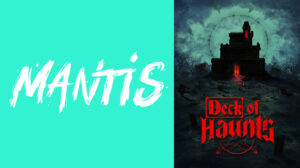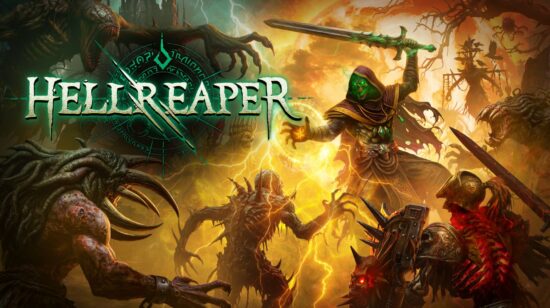An Industry Under Attack: Payment Methods, Censorship, and Privacy Concerns

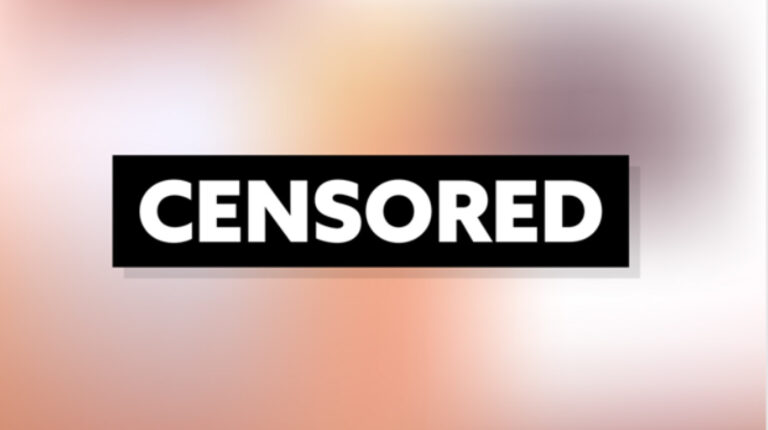
The video game industry is currently dealing with multiple attacks from three different sources, yet they’re all related. In the last two weeks, game platforms Steam and Itch have removed NSFW games, and some horror titles, due to combined pressure from payment providers like Mastercard, and an advocacy group called Collective Shout.
On top of this, there are current concerns regarding online safety that, while not specifically targeted at video games, is threatening to cross over into this industry. Meanwhile, other game sites like Newgrounds and GOG have taken stands against these recent measures.
It all started with an online open letter, posted on July 11, to payment providers from Collective Shout, in which the group said: “We the undersigned are writing to request that you cease processing payments on gaming platforms which host rape, incest and child sexual abuse-themed games.”
“We request that you demonstrate corporate social responsibility and immediately cease processing payments on Steam and Itch.io and any other platforms hosting similar games.”
Jump to:
One Thousand Voices of Dissent
Collective Shout is based in Australia, was founded in 2009, and presents itself as a grassroots movement fighting the objectification of women and girls, primarily focused on sexualization and related issues. It has a lengthy FAQ on its site that includes questions related to safe strangulation and equal opportunity discrimination, and lists “Wins” related to complaints it’s made.
The video game controversy – that it started – is listed as one of its latest Wins. “Following our successful campaign and 70k petition to get rape simulation game No Mercy pulled from gaming platform Steam, we discovered almost 500 other games depicting rape, incest, sexual torture and child abuse.”
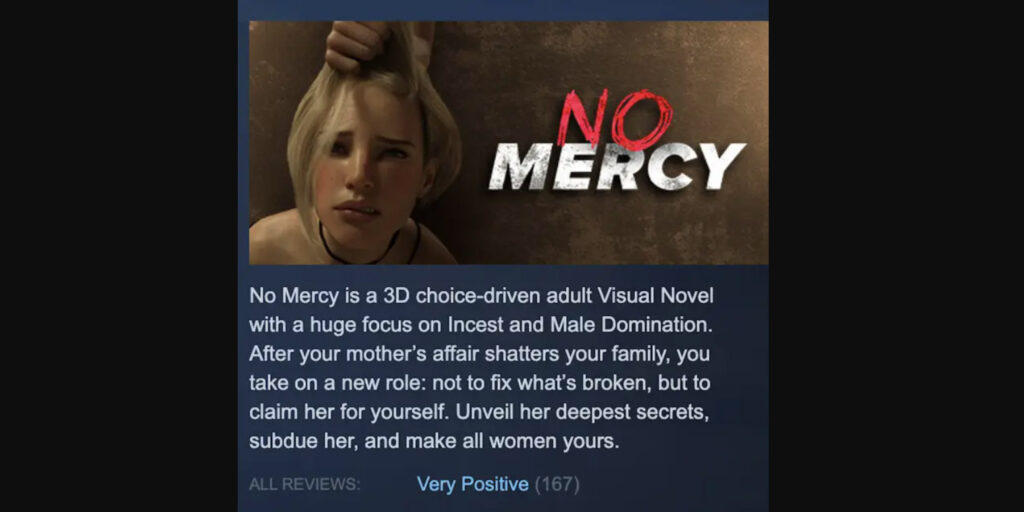
“We encouraged our supporters to email Payment Processors and call them to stop facilitating payments and profiting from these games on Steam – and 1,067 did.”
“This is a major win for women and girls,” the group added.
Big Companies Refute This Narrative
However, while Collective Shout were quick to label this a victory, affected parties don’t entirely agree with the narrative Collective Shout is attempting to further. Chief among them is Mastercard, one of the main payment providers linked with the recent removal of NSFW games.
“Mastercard has not evaluated any game or required restrictions of any activity on game creator sites and platforms, contrary to media reports and allegations,” the company posted on its site on Aug. 1.
“Our payment network follows standards based on the rule of law. Put simply, we allow all lawful purchases on our network. At the same time, we require merchants to have appropriate controls to ensure Mastercard cards cannot be used for unlawful purchases, including illegal adult content.”

Valve, the company behind Steam, issued an official statement in response to this:
“Mastercard did not communicate with Valve directly, despite our request to do so. Mastercard communicated with payment processors and their acquiring banks. Payment processors communicated this with Valve, and we replied by outlining Steam’s policy since 2018 of attempting to distribute games that are legal for distribution.”
“Payment processors rejected this, and specifically cited Mastercard’s Rule 5.12.7 and risk to the Mastercard brand.”
The stated Rule basically covers how Mastercard shouldn’t be linked with questionable content, including anything “which is patently offensive and lacks serious artistic value.” The latter extends to “images of nonconsensual sexual behavior, sexual exploitation of a minor, nonconsensual mutilation of a person or body part, and bestiality.”
The Rule also broadly encompasses “or any other material that the Corporation deems unacceptable to sell in connection” with the Mastercard brand.
Affected Games
Regardless, numerous games have already been removed, calling into question the right to free speech and what constitutes artistic expression. The critically well-received Mouthwashing was thought to have been delisted by Itch, but this was found to be a mistake on the side of the developers; however, other horror games have legitimately been pulled due to the recent censorship issues, including VILE: Exhumed and Fear And Hunger.
Final Girl Games, aka Cara Cadaver, the 30-year-old solo female developer of VILE: Exhumed (a FMV title that examines misogyny) posted on X recently, citing disappointment that the game – which features censored images of herself – has been pulled from Steam.
“I want to be clear. VILE: Exhumed was not banned for its use of gore in storytelling, or the violent themes – it was banned for ‘sexual content with depictions of real people’, which, if you have played it, you know is all implied, making this all feel even worse.”
“I refuse to censor or make changes to the game,” she added. “I will not retell a story about these topics in a way to make people who don’t understand it more comfortable.”
Itch And Other Sites Fight Back
Itch, the independent games platform, drew attention to itself by removing around 21,000 NSFW games without notice. Itch founder, Leaf Corcoran, issued a statement about this on July 28, noting that while Steam checks content before it goes live on that platform, Itch is more open-minded, meaning that anyone can publish anything.
“With over 2 million product pages, anyone can publish content at any time with minimal barriers. We could not rely on user-provided tagging to be accurate enough for a targeted approach, so a broader review was necessary to be thorough,” he said.
A chunk of these have since been relisted, as long as they’re available for free. Corcoran issued a follow-up statement on July 31: “We are still in ongoing discussions with payment processors and will be re-introducing paid content slowly to ensure we can confidently support the widest range of creators in the long term.”
Other game platforms have been more vocal in their defence of gamers and studios, with GOG going so far as to offer 13 games for free this past weekend.

“We believe that if a game is legal, you should be able to buy it now and decades from now,” the company posted on a dedicated Freedom To Buy site. “We fight back by making these games visible, accessible, and undeniable. Freedom to buy is freedom to create.”
GOG’s statement also ties into the ongoing Stop Killing Games (SKG) initiative, which has now closed its main petition and is awaiting further news from the EU. Although SKG isn’t tied to censorship, it is in favor of keeping games from being delisted, which is what’s happened to the titles affected by Collective Shout’s recent campaign.
Won’t Somebody Think of The Children?
There are concerns from others involved in the industry that what’s happening now is tantamount to moral panic, not dissimilar to the heightened, puritanical fear of the 1980s Satanic Panic in the US that believed heavy metal and Dungeons And Dragons were gateways to demonic abuse.
Another parallel can be drawn with the UK’s history of media censorship, especially with regards to Mary Whitehouse, a conservative campaigner active in the 1970s and onwards. Just as Collective Shout is primarily focused on pornography-related media, often citing the protection of children as one of its aims, Whitehouse successfully called for tighter controls related to these areas.
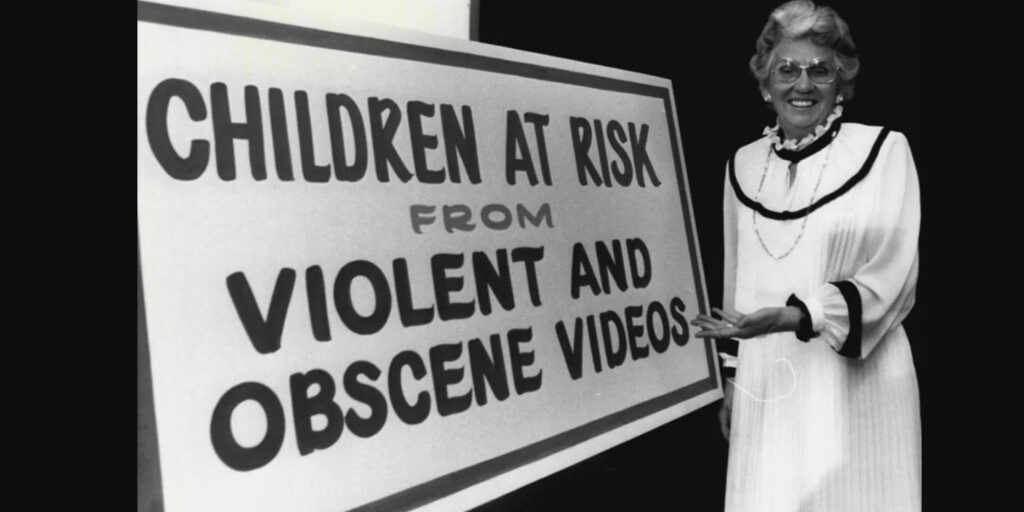
As a result, the UK government passed the 1978 Protection of Children Act, the 1981 Indecent Displays (Control) Act, and the 1984 Video Recordings Act. These covered, respectively, criminal (indecent) images of children, sex shops and adult magazines, and finally so-called “video nasties” – horror movies banned on VHS due to graphic content (many of which have since been re-released).
Although the younger generation may not know Whitehouse’s name or her impact, it continues to be felt. From how juries are set up in the UK to the creation of the Broadcasting Standards Council, which in turn led to the organization of Ofcom, Whitehouse set a lot of these things in motion.
You Are Free (To Do As We Tell You)
Now, her spirit lives on in the recent Online Safety Act (OSA). This UK legislation is a lot to unpack, but the gist is that UK citizens now have to prove their identity when accessing a vast range of online services, including Spotify and Facebook. In this latter regard, it references a forthcoming law in Australia that will ban under-16s from using social media.
The OSA is overseen by Ofcom, which is supposed to be an independent regulator, except that the OSA errs on the side of conservatism: most of the language related to it refers to protecting children and giving adults better tools for accessing information, but the fact is it’s primarily focused on things that children shouldn’t be using anyway such as porn sites and, arguably, social media.
There’s also the fact that it’s mandatory. Companies that don’t follow suit are likely to face large fines.
Some noted organizations, such as the NSPCC (National Society for the Protection of Cruelty to Children), are calling for tighter controls around private messaging apps, as it sees these are more harmful to young people.
Others are speaking out against what’s perceived as an invasion of privacy, with fears that uploading sensitive personal detail to websites is asking for trouble, given that all it takes for this to fall into the wrong hands is for one site to have its data breached.
After the OSA was passed on July 25, an extra 5 million age checks have been carried out every day, according to the Age Verification Providers Association, a global trade body for independent providers of privacy-protecting, standards-based, age assurance technology.
There are also concerns that the OSA will limit freedom of speech, although a UK government spokesperson recently countered these claims, stating: “As well as legal duties to keep children safe, the very same law places clear and unequivocal duties on platforms to protect freedom of expression.”
Gamers Should Be Trusted
Gaming platforms are subject to age verification in the UK as part of the OSA, but not every site is in full agreement with this new law. Newgrounds, the entertainment website home to multiple popular video games, issued a lengthy statement on July 30 about its plans to trust users.
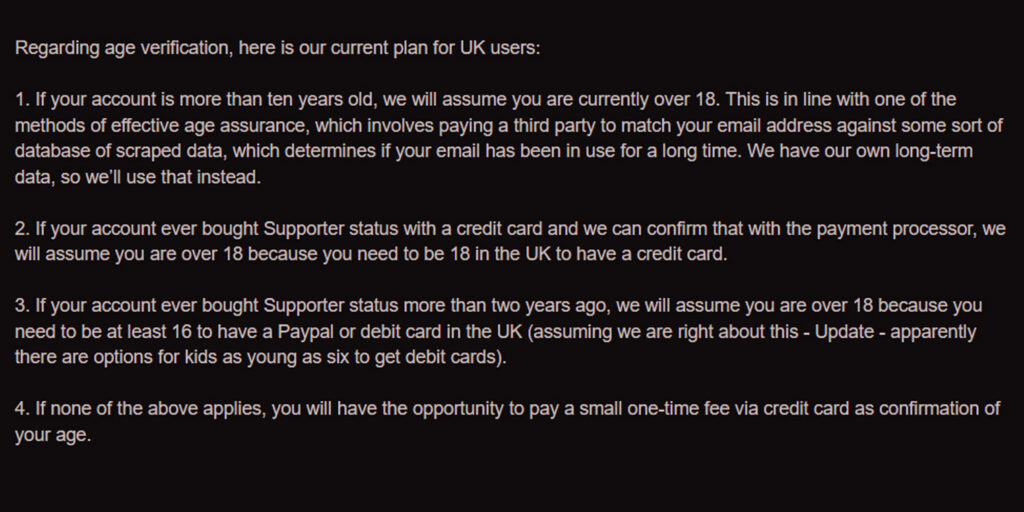
Newgrounds added: “We are not planning to offer things like ID checks or facial recognition because these require us to pay a third party to confirm each person. Because Newgrounds runs at a loss and doesn’t monetize users very well, this is not an option for us.”
As it also went on to highlight, independent websites won’t be able to afford to keep up with the OSA regulation. As an example, it can cost around £2,400 ($3,190) a year to use OSA-compliant verification software; a sum many small businesses simply do not have the budget to cover.
The EU And US Aren’t Immune
Collective Shout’s campaign may have started in Australia but it’s had a knock-on effect on an international scale, and the OSA is set to do the same. In the EU, for example, the Digital Fairness Act (DFA) is currently accepting comments related to unfair business practices.
While not specifically targeted at children, it does encompass online issues that can affect them, such as what it calls “dark patterns” on social media related to advertising and undue influencing of user behavior. There is some good news related to the DFA, though, and it’s that it can be used as an additional platform for supporters of Stop Killing Games.
Meanwhile, the US government already has the Kids Online Safety Act under consideration, but there are concerns this will be altered to be more in line with the OSA, and also affect – as the Collective Shout campaign already has – LGBTQ+ content.
Regarding this issue, the International Game Developers Association (IGDA), the world’s largest non-profit organization incorporating companies and individuals from all levels of the video game industry, issued a statement.
“We are alarmed by the vague enforcement of policies delisting and deplatforming legal, consensual, and ethically-developed games, especially from LGBTQ+ and marginalized creators. Developers deserve clear rules, fair warnings, and the right to appeal.”
“Many of these same games already follow established rating systems and content warnings, including ESRB and international equivalents,” it added.
“Developers are using existing tools to clearly communicate content, set expectations, and responsibly age-gate their work. The issue is not a lack of safeguards, but a lack of proportionate, informed, and transparent enforcement.”




